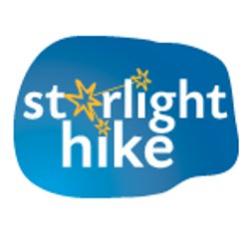Disability and illness support charity Sue Ryder is aiming to raise over £1m this September through its new ‘Starlight Hike’ events.
The sponsored walks will take place throughout the month at 11 different locations across the UK. Participants will begin walking at midnight with each route being just over six miles. Money raised will go towards providing care and support for people affected by illness or injury.
With charities facing increasing demand for their services in the current economic climate, the importance of this fundraising event was highlighted by Jason Suckley, director of fundraising and marketing at Sue Ryder.
“The money we hope to raise through our Starlight Hike events will have a significant impact on our ability to fund the growing demand for compassionate and expert care for people living with complex conditions such as cancer, multiple sclerosis, stroke, Parkinson’s disease, Huntingdon’s disease, motor neurone disease and brain injury.
"As David Cameron’s Big Society continues to roll out, the role charities are expected to play in the delivery of services for the NHS can only increase,” said Suckley.
According to a recent poll undertaken by Sue Ryder, 40 per cent of Brits would turn to a charity for help if facing serious life-changing illness, yet only 8 per cent took part in a health-related charity fundraising event last year. Sue Ryder is using the Starlight Hike events to encourage people to raise money before they are affected directly or indirectly by illness, hoping to challenge the “it will never happen to me or mine” attitude that some people take towards charity fundraising.
Only 4 per cent of the 2,104 people surveyed took part in a fundraising event last year for a health charity when they had not already been affected by a life-changing illness. This figure rose to 10 per cent amongst those who have been affected.









